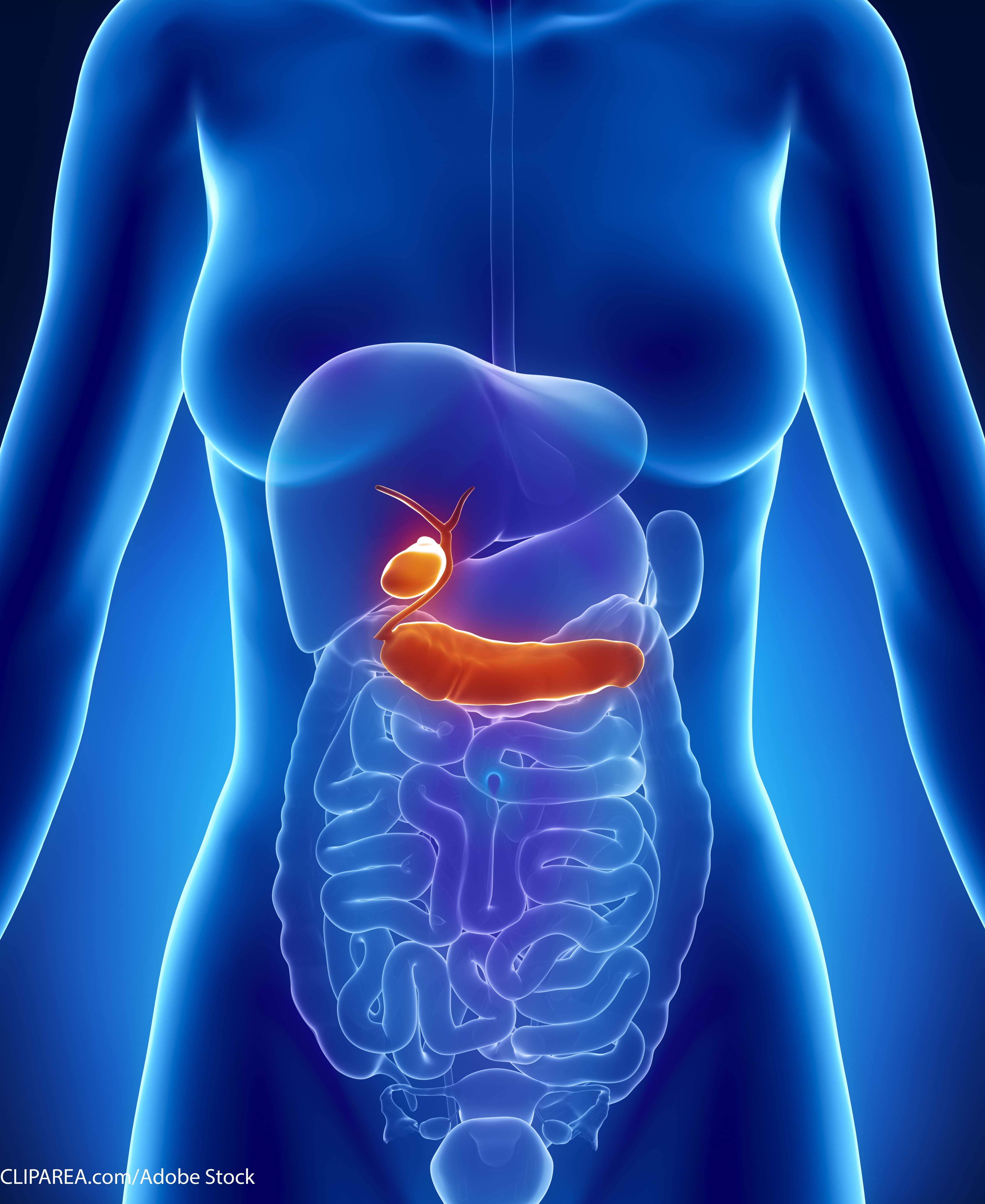Zanidatamab Recommended for Conditional Marketing Approval in Advanced HER2+ BTC
The recommendation from the CHMP is based on results from the phase 2b HERIZON-BTC-01 trial of zanidatamab in advanced HER2+ biliary tract cancer.
No deaths were attributed to zanidatamab for patients with advanced HER2+ biliary tract cancer treated in the phase 2b HERIZON-BTC-01 trial.

The Committee for Medicinal Products for Human Use (CHMP) of the European Medicines Agency has given a positive opinion recommending a conditional marketing authorization to zanidatamab-hrii (Ziihera) as a monotherapy treatment for adult patients with unresectable locally advanced or metastatic HER2-positive biliary tract cancer (BTC) previously treated with 1 or more prior lines of systemic therapy, according to a news release from the drug’s developer, Jazz Pharmaceuticals.1
The CHMP recommendation is based on results from the phase 2b HERIZON-BTC-01 (NCT04466891) trial, evaluating zanidatamab in previously treated, inoperable HER2-positive BTC. Results presented at the 2024 American Society of Clinical Oncology (ASCO) Annual Meeting showed zanidatamab elicited an overall response rate (ORR) of 52% (95% CI, 39%-65%) via independent review committee (IRC) assessment.2
Further data revealed that the disease control rate was 68.8% and that the median duration of response (DOR) was 14.9 months (95% CI, 7.4-not reached).3 Furthermore, among patients with immunohistochemistry score of 3+, the median overall survival was 18.1 months (95% CI, 12.2-23.2), with respective 6- and 12-month rates of 90.1% (95% CI, 79.2%-95.4%) and 65.0% (95% CI, 51.6%-75.6%).
Zanidatamab received FDA approval as a 50-mg/mL injection or intravenous infusion for patients with previously treated, unresectable, or metastatic HER2-positive BTC in November 2024.4 Additionally, the FDA granted priority review to a biologics license application for zanidatamab in this patient population based on initial trial findings.5
"This positive CHMP opinion is a welcome step for physicians and patients in Europe who face a critical unmet need in HER2-positive biliary tract cancers, a rare and aggressive group of cancers with poor prognosis and limited treatment options," Robert Iannone, MD, MSCE, executive vice president, global head of research and development, and chief medical officer at Jazz Pharmaceuticals, stated in a news release on the CHMP decision.1 "If approved, zanidatamab would be the first HER2-targeted therapy licensed for this difficult-to-treat cancer in the EU, marking an important milestone in addressing this unmet need. We look forward to the European Commission's decision and the opportunity to provide a new treatment option for patients."
Patients with advanced, unresectable, or metastatic HER2-positive BTC in the phase 2b trial received 20 mg/kg of intravenous zanidatamab every 2 weeks plus infusion-related reaction prophylaxis on days 1 and 15 of 28-day cycles. Additionally, patients underwent CT/MRI per RECIST v1.1 criteria every 8 weeks.
The primary study end point was IRC-confirmed ORR. Secondary end points included DOR, disease control rate (DCR), and progression-free survival (PFS) per IRC as well as investigator-assessed ORR, DOR, DCR, and PFS.
Regarding safety, any-grade treatment-emergent adverse effects (TRAEs) occurred in 96.6% of patients who received zanidatamab in the trial. The most common any-grade TRAEs included diarrhea (36.8%), infusion-related reactions (33.3%), decreased ejection fraction (10.3%), and nausea (9.2%). The most common grade 3 or higher TRAEs included diarrhea (4.6%), decreased ejection fraction (3.4%), anemia (3.4%), and increased aspartate aminotransferase level (2.3%).
No deaths were attributed to zanidatamab treatment. TRAEs leading to dose reductions included one grade 3 instance of diarrhea, individual cases of grade 1 diarrhea and nausea, and one grade 2 instance of decreased weight.
Patients eligible for enrollment were 18 years or older, received prior gemcitabine-containing therapy, had 1 or more measurable target lesions, and had an ECOG performance status of 0 or 1. Patients were ineligible for enrollment if they received prior HER2-targeting therapies.
References
- Jazz Pharmaceuticals receives CHMP positive opinion for zanidatamab for the treatment of advanced HER2-positive biliary tract cancer. News release. Jazz Pharmaceuticals. April 25, 2025. Accessed April 25, 2025. https://tinyurl.com/235t87us
- Pant S, Fan J, Oh DY, et al. Zanidatamab in previously-treated HER2-positive (HER2+) biliary tract cancer (BTC): overall survival (OS) and longer follow-up from the phase 2b HERIZON-BTC-01 study. J Clin Oncol. 2024;42(suppl 16):4091. doi:10.1200/JCO.2024.42.16_suppl.4091
- Harding JJ, Fan J, Oh DY, et al. Zanidatamab for HER2-amplified, unresectable, locally advanced or metastatic biliary tract cancer (HERIZON-BTC-01): a multicentre, single-arm, phase 2b study. Lancet Oncol. 2023;24(7):772-782. doi:10.1016/S1470-2045(23)00242-5
- Jazz Pharmaceuticals announces U.S. FDA approval of Ziihera (zanidatamab-hrii) for the treatment of adults with previously treated, unresectable or metastatic HER2-positive (IHC 3+) biliary tract cancer (BTC). News release. Jazz Pharmaceuticals. November 20, 2024. Accessed April 25, 2025. https://shorturl.at/k6u8A
- Zanidatamab granted priority review for HER2-positive metastatic biliary tract cancer. News release. Jazz Pharmaceuticals. May 29, 2024. Accessed April 25, 2025. https://tinyurl.com/2py5zj6e